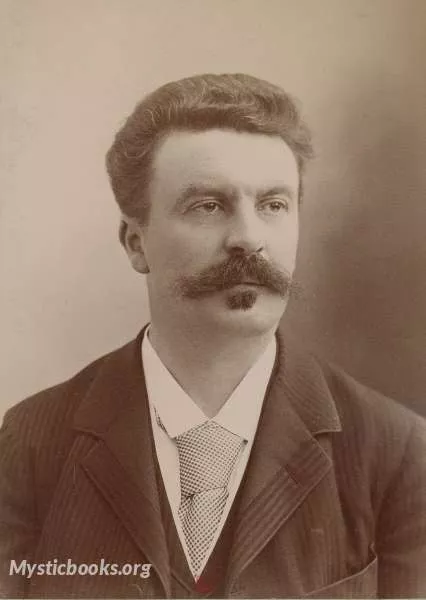
Timeline
Title
Country/Nationality
Guy de Maupassant
Henri René Albert Guy de Maupassant was a 19th-century French author, remembered as a master of the short story form, and as a representative of the Naturalist school, who depicted human lives and destinies and social forces in disillusioned and often pessimistic terms.
Maupassant was a protégé of Gustave Flaubert and his stories are characterized by economy of style and efficient, seemingly effortless dénouements. Many are set during the Franco-Prussian War of the 1870s, describing the futility of war and the innocent civilians who, caught up in events beyond their control, are permanently changed by their experiences. He wrote 300 short stories, six novels, three travel books, and one volume of verse. His first published story, "Boule de Suif" ("The Dumpling", 1880), is often considered his masterpiece.
Henri-René-Albert-Guy de Maupassant was born on 5 August 1850 at the late 16th-century Château de Miromesnil, near Dieppe in the Seine-Inférieure (now Seine-Maritime) department in France.
When Maupassant was 11 and his brother Hervé was five, his mother, an independent-minded woman, risked social disgrace to obtain a legal separation from her husband, who was violent towards her.
In 1867, as he entered junior high school, Maupassant made acquaintance with Gustave Flaubert at Croisset at the insistence of his mother. Next year, in autumn, he was sent to the Lycée Pierre-Corneille in Rouen where he proved a good scholar indulging in poetry and taking a prominent part in theatricals. In October 1868, at the age of 18, he saved the famous poet Algernon Charles Swinburne from drowning off the coast of Étretat.
The Franco-Prussian War broke out soon after his graduation from college in 1870; he enlisted as a volunteer. In 1871, he left Normandy and moved to Paris where he spent ten years as a clerk in the Navy Department. During this time his only recreation and relaxation was boating on the Seine on Sundays and holidays.
In 1881 he published his first volume of short stories under the title of La Maison Tellier; it reached its twelfth edition within two years. In 1883 he finished his first novel, Une Vie (translated into English as A Woman's Life), 25,000 copies of which were sold in less than a year. His second novel, Bel-Ami, which came out in 1885, had thirty-seven printings in four months.
Maupassant was one of a fair number of 19th-century Parisians (including Charles Gounod, Alexandre Dumas, fils, and Charles Garnier) who did not care for the Eiffel Tower. He often ate lunch in the restaurant at its base, not out of preference for the food but because it was only there that he could avoid seeing its otherwise unavoidable profile. He and forty-six other Parisian literary and artistic notables attached their names to an elaborately irate letter of protest against the tower's construction, written to the Minister of Public Works.
Maupassant also wrote under several pseudonyms such as Joseph Prunier, Guy de Valmont, and Maufrigneuse (which he used from 1881 to 1885).
On 2 January 1892, Maupassant tried to commit suicide by cutting his throat, and was committed to the private asylum of Esprit Blanche at Passy, in Paris, where he died 6 July 1893 from syphilis.
Maupassant penned his own epitaph: "I have coveted everything and taken pleasure in nothing." He is buried in Section 26 of the Montparnasse Cemetery, Paris.
Books by Guy de Maupassant

Boule de Suif
Boule de Suif, translated variously as Dumpling, Butterball, Ball of Fat, or Ball of Lard, is a famous short story by the late 19th-century French writer Guy de Maupassant, first published on 15/16 April 1880. It is arguably his most famous short sto...
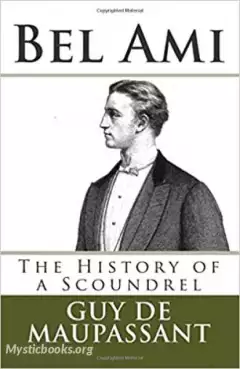
Bel Ami: Or the History of a Scoundrel
Bel-Ami is the second novel by French author Guy de Maupassant, published in 1885; an English translation titled Bel Ami, or, The History of a Scoundrel: A Novel first appeared in 1903. The story chronicles journalist Georges Duroy's corrupt rise to...
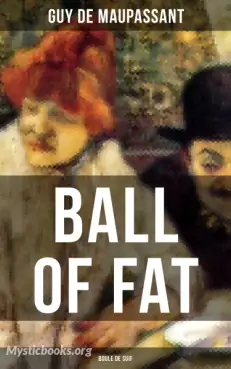
Ball-of-Fat
The story is set in the Franco-Prussian War and follows a group of French residents of Rouen, recently occupied by the Prussian army. The ten travellers decide for various reasons to leave Rouen and flee to Le Havre in a stagecoach. Sharing the carri...
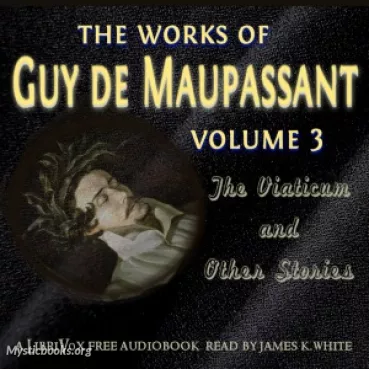
The Works of Guy de Maupassant, Volume 3: The Viaticum and Other Stories
Explore the dark and twisted world of Guy de Maupassant, one of the greatest masters of the short story. The Works of Guy de Maupassant, Volume 3: The Viaticum and Other Stories is a collection of short stories by one of the greatest masters of the...
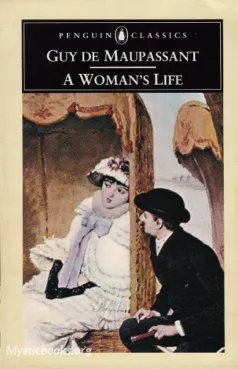
A Woman's Life
A Woman's Life is a captivating novel by Guy de Maupassant that chronicles the life of Jeanne, a young woman born into a wealthy Norman family. From her sheltered upbringing in a convent school to her disillusioning experiences in marriage, motherhoo...
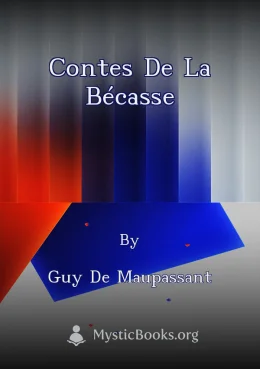
Contes de la bécasse
Dans les dix-sept nouvelles composant « Les contes de la bécasse », Guy de Maupassant dépeint en quelques traits des personnages et décors – pour la plupart normands –, mettant en exergue de manière ironique – parfois aussi pessimiste – les faiblesse...
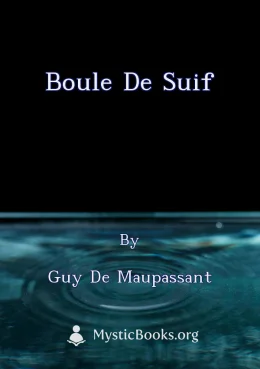
Boule de suif
Douze nouvelles dans lesquelles Guy de Maupassant pose un regard ironique, voire pessimiste, sur la société française de la fin du XIXe siècle. (Par Didier)
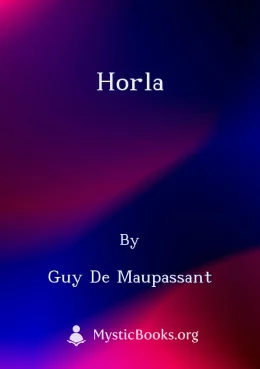
Horla
An atmospheric and haunting tale of a man who becomes convinced that he is being stalked by an unseen presence. As strange events escalate, the man's sanity begins to unravel, and he descends into a spiral of fear and paranoia. With its vivid imagery...

Horla
In Guy de Maupassant's chilling novella *Horla*, an unnamed narrator grapples with a terrifying and unsettling presence that seems to be slowly taking over his life. As strange and inexplicable events begin to occur around him, the narrator's sanity...

Ball of Fat (Boule de suif) Version 2
Ball of Fat is a powerful and moving story set during the Franco-Prussian War. It follows a group of travelers as they make their way across occupied France. Among them is a prostitute named Boule de Suif, who is ostracized by the other travelers bec...
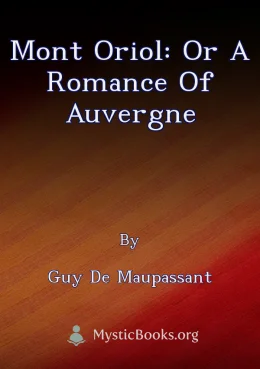
Mont Oriol: or A Romance of Auvergne
Mont Oriol is a novel by Guy de Maupassant set in the mountainous region of Auvergne in France. The story centers on Christiane, a young bride who travels to a spa with her sickly husband. She soon finds herself entangled in a web of deceit, involvi...
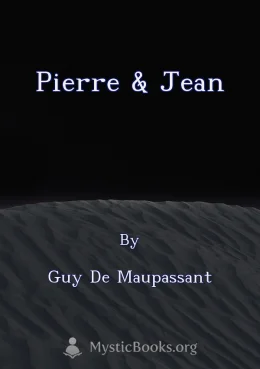
Pierre & Jean
In the small town of Le Havre, France, the Lebras family is thrown into turmoil when the patriarch of the family dies and leaves his entire fortune to his younger son, Jean. His older brother, Pierre, is devastated. He has always been the responsible...
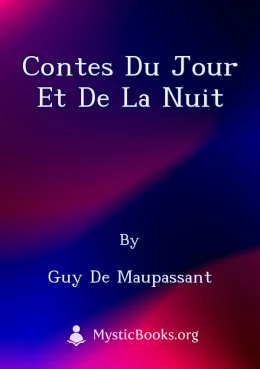
Contes du jour et de la nuit
Dans "Contes du jour et de la nuit", Guy de Maupassant explore la complexité de la nature humaine à travers une collection de 27 contes. Les histoires, oscillant entre le triste, l'horrible, le drôle et le fantastique, dévoilent la vie quotidienne de...

Bola de sebo
En la Francia ocupada por los prusianos durante la guerra franco-prusiana, un grupo de viajeros se ve obligado a pasar la noche en una posada aislada. Allí, un oficial prusiano exige que una de las mujeres, conocida como "Bola de sebo", pase la noche...
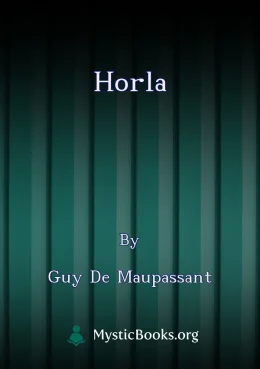
Horla
The Horla is a chilling tale of psychological horror, exploring the themes of isolation, madness, and the terrifying unknown. It follows an unnamed narrator who becomes convinced that he is being haunted by an invisible entity, the Horla, which subtl...

Complete Original Short Stories of Guy de Maupassant
Guy de Maupassant's 'Complete Original Short Stories' is a collection of some of the most celebrated short stories in world literature. Maupassant, a master of the form, explores universal themes of love, loss, war, and the human condition with wit,...
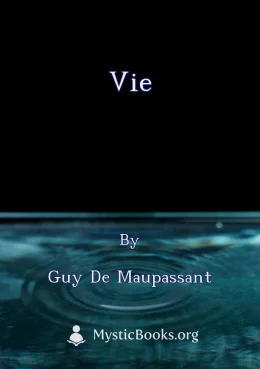
Vie
Guy de Maupassant's Une Vie is a masterpiece of psychological realism, depicting the life of a young woman named Jeanne from her childhood in the Norman countryside to her old age. Maupassant paints a vivid portrait of Jeanne's inner life, exploring...

Cuentos escogidos
This collection of selected short stories by Guy de Maupassant offers a glimpse into the complexities of French society in the 19th century. Known for his sharp observations and unflinching portrayal of human nature, Maupassant's work explores themes...

buen mozo (Bel ami)
'Bel Ami' by Guy de Maupassant is a classic novel that explores the themes of adultery, ambition, and social climbing in 19th-century Paris. The story follows Georges Duroy, a young man from a modest background, who uses his charm and cunning to rise...